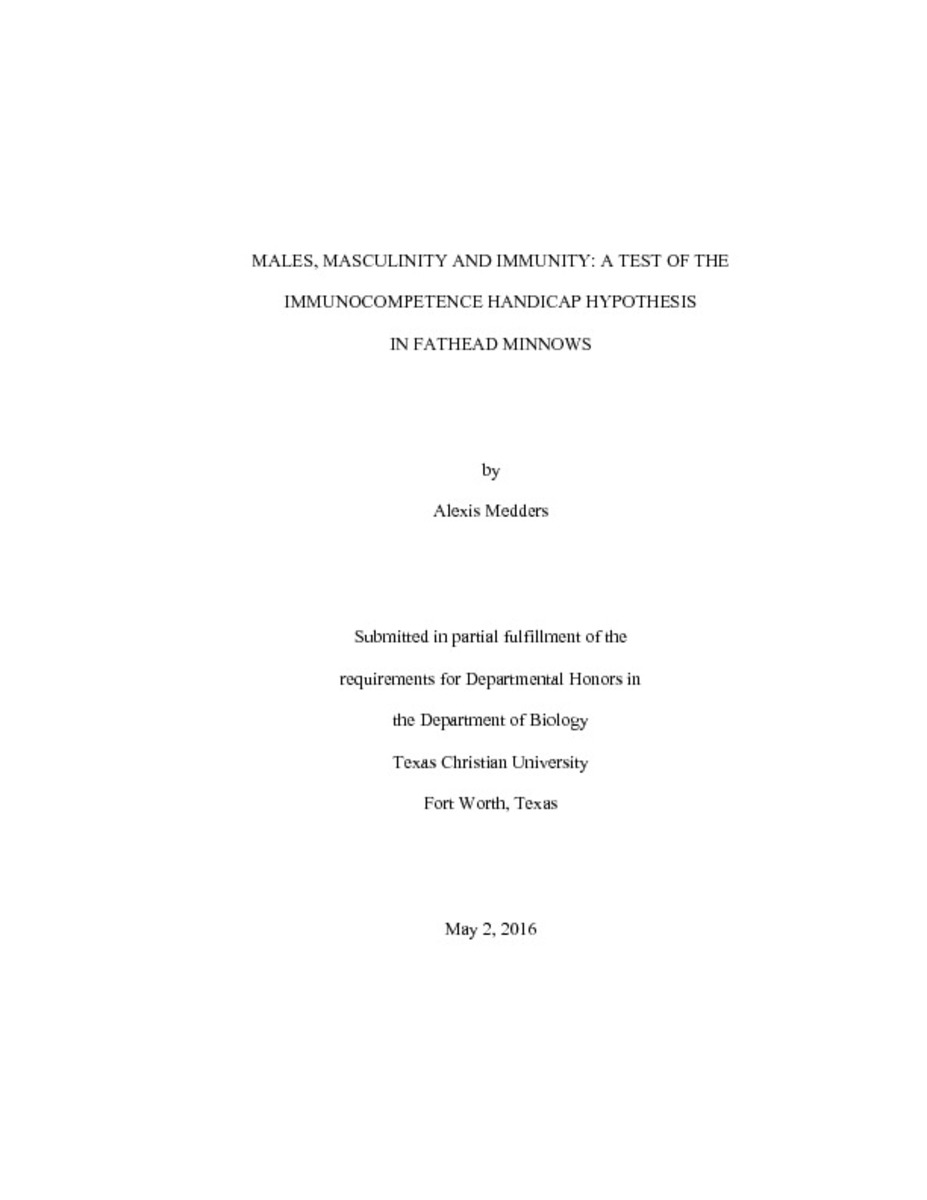Males, Masculinity, and Immunity: A Test of the Immunocompetence Handicap Hypothesis in Fathead MinnowsShow full item record
| Title | Males, Masculinity, and Immunity: A Test of the Immunocompetence Handicap Hypothesis in Fathead Minnows |
|---|---|
| Author | Medders, Ali |
| Date | 2016 |
| Abstract | Mate selection by females typically favors males with more prominent sex specific traits or ornamentation. Previous studies have shown that the prominence of such male traits is positively correlated with androgen (e.g., testosterone) levels. An increase in secondary sexual characteristics enhances the likelihood of attracting a mate and that such a male will be able to reproduce. However, there is also evidence to suggest that increased androgen levels may impair immune function. The immunocompetence handicap hypothesis addresses the relationship between androgens, sexual ornamentation, and immune function. Some studies have provided evidence to support this hypothesis, while others have provided evidence suggesting that another hypothesis known as the stress-induced immunocompetence handicap hypothesis is more appropriate because the stress hormone, cortisol, rather than testosterone, is a key factor in regulating both the expression of sexual ornamentation and immune function. The present study evaluated the immunocompetence handicap and stress-induced immunocompetence handicap hypotheses by utilizing male fathead minnows (Pimephales promelas) divided into two groups of fish, one with high ornamentation and another with low ornamentation. Immune function was measured using a pathogen resistance challenge, spleen mass, and gene expression. Duds were shown to have significantly larger spleen indexes and lower immune gene expression than the studs indicating increased immunocompetence. No differences in plasma androgen levels were detected. However, duds had significantly higher levels of cortisol than studs indicating that differences in male ornamentation and immune function between the studs and duds are likely driven by stress hormones. These results best support the stress-induced immunocompetence handicap hypothesis. |
| Link | https://repository.tcu.edu/handle/116099117/11377 |
| Department | Biology |
| Advisor | Jeffries, Marlo K. |
| Additional Date(s) | 2016-05-19 |
Files in this item
This item appears in the following Collection(s)
- Undergraduate Honors Papers [1478]
© TCU Library 2015 | Contact Special Collections |
HTML Sitemap



